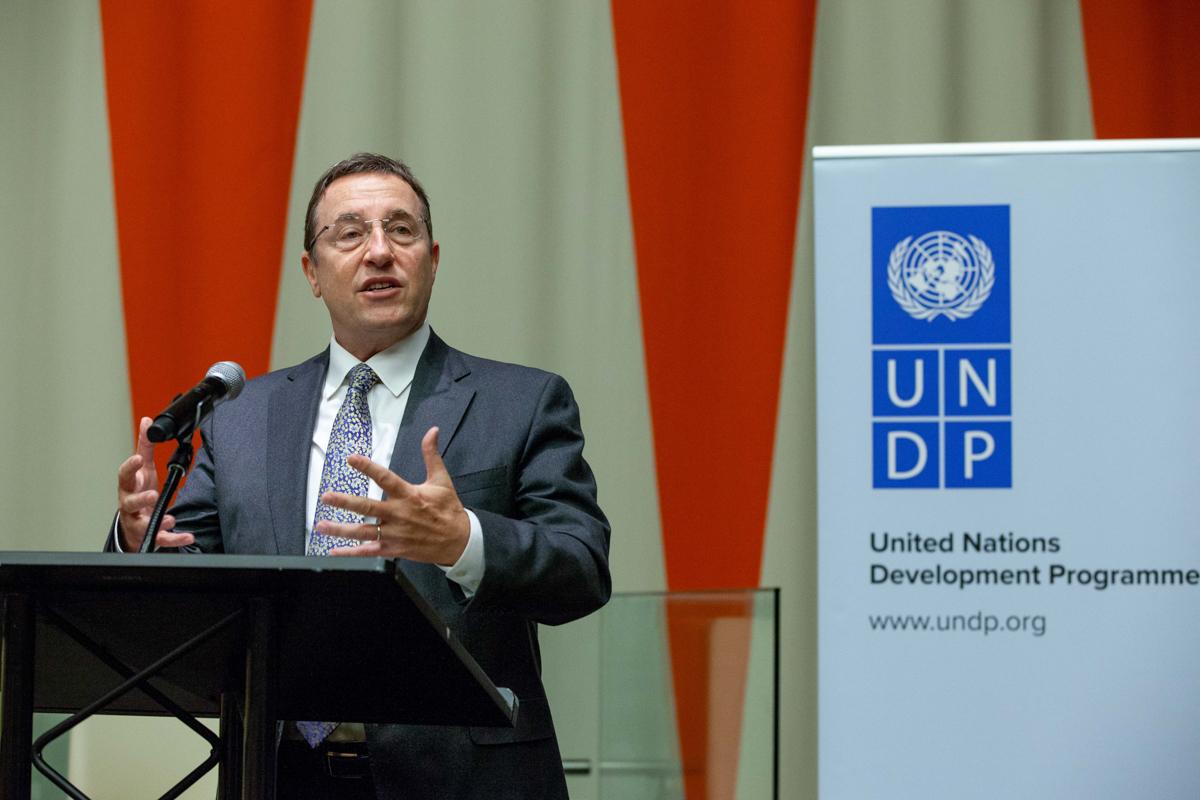Building a future where people and planet thrive together.
UNDP Administrator Achim Steiner begins second term
June 17, 2021

Today, I commence my second term as Administrator of the United Nations Development Programme (UNDP)
17 June 2021 is a special milestone for me. Today, I commence my second term as Administrator of the United Nations Development Programme (UNDP). I thank the United Nations (UN) Secretary-General and the Member States of the UN General Assembly for the trust and confidence they have placed in me.
Since I joined UNDP in 2017, our organisation has undergone profound change.
I have seen the extraordinary collaboration between UN Development System colleagues across the globe, and the dedication of our staff serving UNDP and its extended family -- the UN Capital Development Fund (UNCDF), UN Volunteers (UNV), UN Office for South-South Cooperation (UNOSSC), and the Multi Partner Trust Fund Office (MPTF).
With integrated solutions across issues from poverty and inequality, to conflict prevention, to the climate emergency and a pandemic -- we have stepped up together to help countries and communities tackle the most pressing development challenges of our generation.
In these past years, re-focusing UNDP on the future of development has required a shift in mindset – and culture. #NextGenerationUNDP is my call – to UNDP’s personnel and our many partners - to prioritize listening carefully to those closest to the problems we are trying to solve together; to be bold in advancing more effective and efficient ways of working and managing risks; and to be imaginative when it comes to using technology, data and networking to help bring the Sustainable Development Goals into view.
And this shift is bearing fruit.
When the COVID-19 pandemic hit, we rapidly deployed nearly $1 billion, including to support Governments across the world so that they could continue to provide vital services. We led the development of in-country socio-economic analysis by the UN system to help 144 countries better identify what action to take.
The UNDP Accelerator Labs network helped communities to rapidly surface and scale-up a range of much-needed, and often surprising solutions – from the roll-out of robots in COVID-19 treatment centres in Kenya and Rwanda to the rapid 3D printing of personal protective equipment. The network, active in 115 countries, is now the world’s largest and fastest learning network on sustainable development challenges thanks to support of key partners like Germany and Qatar.
We continue to help countries and businesses to insert the “DNA” of a green, inclusive economy into their COVID-19 recovery and stimulus measures. This includes working through the UNDP Climate Promise, through which we are working with 118 countries to enhance their climate pledges, and supporting countries’ towards clean, renewable energy – vital efforts in the lead-up to CBD COP15, COP26 and the High-Level Dialogue on Energy.
And through our global thought leadership on building forward better we helped to raise the ambition of global policy responses.
This included introducing research on a temporary basic income for all people living in poverty, modelling ‘SDG Push’ scenarios to help governments make policy choices today that have the greatest potential for the future, and launching a new, planetary pressures-adjusted Human Development Index -- part of UNDP’s 30th anniversary look at “The Next Frontier: Human Development and the Anthropocene.”
The investments we have made in the past four years – including in our greatest asset: our people -- have readied UNDP as part of the UN Development System for its important assignment yet: helping to build a future of development where people and planet live in balance. Because that is the next frontier for us all.
As we move forward, I am committed to leading a UNDP that will work with optimism, dedication and even more closely with all of our partners, to deliver ambitious development impact with the communities we serve.
Achim Steiner, United Nations Development Programme (UNDP)

 Locations
Locations